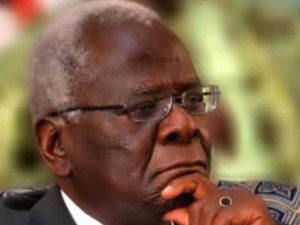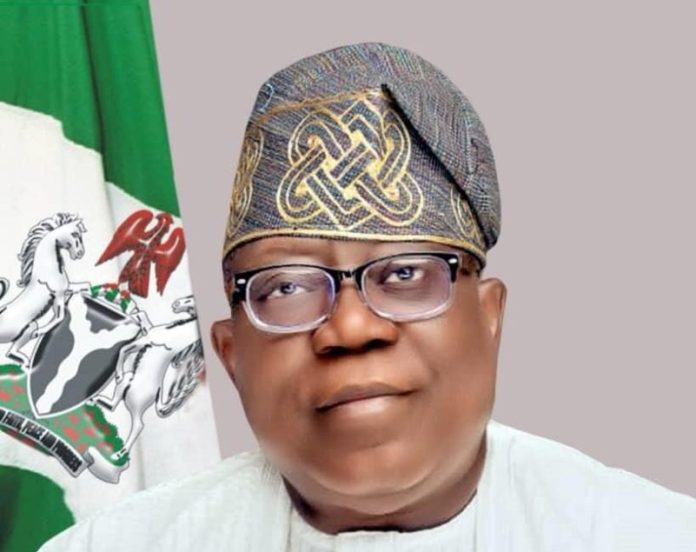Tunji Olaopa Professor of Public Administration & ChairmanFederal Civil Service Commission, Abuja
Events, incidences and circumstances often coalesce to bring about the remembrances of things gone and things that make for how the present is constituted out of the past. The months of May and June brought about such reminiscing in the very sad events of the demise of Professor Ayo Banjo, followed almost immediately in June by that of my formidable foe and later lifelong friend, late Femi Oladele Lucas Falana (no relation with the SAN – that being a story for another day!).
These two significant figures in my character and professional maturation are not unconnected; the three of us occupied a fundamental temporal space at a point in time. And that space conditioned the emergence and consolidation of a significant part of my perspectives on life, leadership and the task of societal, governance and institutional reforms.

I mourn these two solid people specially because of the roles Providence allowed them to play in my evolution and foundational leadership training—and I on theirs. Human relations are for mutual reinforcement, either for good or for ill. And sometimes when issues are developing in our relationship with others—either for good or for ill—we have no ideas how those issues and circumstances will mold us.
This is the point of my reminiscing about my relationship with the late Ayo Banjo and Femi Oladele Falana. I fondly refer to the late Emeritus Professor Ayo Banjo as “my Vice Chancellor”, but most people do not know the depth of the gratitude I owe the late professor and his deep humaneness.
My relationship with the late Falana was however adversarial and turbulent. And it was the confrontation between us, during the period when student union activism at the University of Ibadan in the early 1980s was most critical, that brought Prof. Ayo Banjo as a humane mediator. My encounters with these figures, and with many others, contributed immensely to how I would perceive my professional future.
When Aderemi Raji-Oyelade, a distinguished professor at the Department of English, University of Ibadan, and one of the key players at the period in time, narrated this series of events in his eulogy to the memory of Professor Banjo, just like the renowned columnist and my classmate, Segun Ayobolu, did earlier, I felt compelled to stretch the narrations to be able to articulate my appreciation to those Providence has brought my way, and in gratitude to God for making my maturation worthy of a salute to those who have impacted me. As an undergraduate, my embedded interest and immersion in student unionism was an opportunity cost of earning a sterling degree as an undergraduate.
However, what I lost in terms of an excellent grade, I gained in terms of an initiation into a learning curve in transformational leadership orientation that articulates nation-building, development expertise and reform advocacy and expertise into a professional portfolio. I cut my student union activism as a member of the executive of the Federation of Oyo State Student Union. My audacity, or if you like, notoriety, especially with the Bola Ige administration has been the subject of many pieces, and is beautifully narrated in my memoir,
.The Unending Quest for Reform (2023). It therefore does not bear a re-telling here for the constraint of space. It was therefore that reputation for activism, and especially my concern with student welfare that got me involved in a series of campus-wide conversation and consultation during the incumbency of Bayo Olowo-Ake as SUG president.
The conversation was around the need to focus commitment to a university development while abjuring an adversarial unionism for unionism’s sake. Hence, the key stakeholders at the university level were resolved to facilitate the emergence of a consensus candidate for the SUG presidency and a successor to Bayo Olowo-Ake. After some rigorous interviews and consultation,
I emerged as consensus candidate out of many. Of course, not every stakeholder has the best interest of the university at heart. I was summoned by the Pyrate Confraternity and provided with a set of conditions that would facilitate its acceptance of my candidature. I refused these conditions as a matter of principle. My dedication to philosophical reflection and principles derived in part from my political science learning up unto that time had imbued me with some circumspection enough for me to be able to see through the implications of a derailment of purpose.
But I was still too naïve to anticipate the extent the Confraternity was willing to go to have its way. Of course I lost the election, and Femi Falana was the hatchet man. He had the right amount of notoriety and radicality to fit into the Pyrates’ agenda. Unfortunately, his tenure set off perhaps one of the most violent student riots in the history of student activism at the University of Ibadan. It was a really sad period for me because on the one hand, I was gearing for a most momentous period of leadership training and responsible commitment to an institution I was really ready to contribute my quota to impact on.
On the other hand, I could not really fathom how such an institution could be made the subject of a hatchet job that would lead to institutional chaos. Being a critical player, and given my erstwhile position as a consensus candidate, I was prevailed upon to weigh in as part of the team to restore order when it became clear that Femi had taken the entire student body for a ride. I thought it fit to reach out to the student union parliament as well as the SUG president in the eye of the storm so we can work out a damage control protocol.
Unfortunately, my peace gestures were spurned by the president. The misplaced rascality once again came to the fore even at a time when the institution that we all loved was engulfed in crisis. I had no choice but to initiate a vote of no confidence in the parliament that got him impeached as the SUG president.
But then, Femi Falana always had some ace up his sleeves. When late Prof. Samson Olajuwon Olayide, the Vice Chancellor, eventually set up a commission of inquiry to investigate the student riot, and the renowned journalist and former editor of the Sketch newspapers—the late Labanji Bolaji—was appointed to head it, Femi Falana and his cohort had a memorandum ready that had my name and those of my many supporters as culprits.
The memorandum recommended that we be rusticated. While the commission of inquiry went about its findings, Prof. Olayide, the Vice Chancellor, unfortunately met an untimely demise. And this is where Prof. Ayo Banjo, the deputy Vice Chancellor, stepped in, in an acting capacity. It was our good fortune that he made the statesmanlike decision to continue the yeoman’s job of seeing Olayide’s institution building to its logical conclusion.
Whether he saw through the political antics on campus or was just eager to bypass all the shenanigans for the sake of peace and development, we can only keep speculating. Suffice it to say that the commission of inquiry met its natural end, we were exonerated, and we became a significant part of the continuing conversation with management to move the university forward. The point of my indebtedness should be clear now, and the reason why the deaths of Prof. Ayo Banjo and Femi Lucas Falana weighed so heavily on my spirit.
Appropriating Prof. Banjo as “my” vice chancellor only implies my continuing gratitude for the opportunities he provided in grounding my leadership learning and institutional reform expertise. The University of Ibadan was not therefore just a citadel of learning for me; it was equally a foundational space for the emergence of my professional direction.
I was grounded in the theoretical and intellectual perspectives of the humanities and social science disciplines, and I was also introduced to varying shades of human relational dynamics and what blossomed to become my unending quest for reform. From the Pyrate Confraternity to Femi Lucas Falana, I learnt different lessons on the role that conflicts play in human and institutional trajectories.
Luke Roberts provides the philosophical context for framing the consequences of that chaotic period in student activism at the University of Ibadan. According to him, “Conflict is good in a negotiation process… it’s the clash of two ideas, which then, all being well, produces a third idea.” I read this in terms of Hegel’s dialectics of ideas and circumstances—the thesis and the anti-thesis produce the synthesis, the third idea. And that idea translates to what we all, from the indefatigable Ayo Banjo to the rascally Femi Falana and the institutional reformer me.
Between the three of us, the conflictual cauldron of student activism provided the ground for mutually reinforcing engagements within learning contexts that produced different character, perspectives and futures. I am glad Femi Lucas Falana and I did not give up on each other (Femi and I later became friends, and at a time he put up in my house in Abuja for over six months), or allow our future collaborations overturned by the heat of adversarial conflicts.
We both realized that the University of Ibadan and our notoriety were only a phase in our lives, but a crucial phase that we had to negotiate on our paths to even more fundamental phases. I am more convinced than ever that between me and Femi Lucas Falana, our paths crossed, and that engagements and confrontations produced a better us that looked back on those activism days—as I am now doing—with fondness, hindsight and deep reflection on the trajectories of human evolution.
Share your story or advertise with us: Whatsapp: +2347068606071 Email: info@newspotng.com











